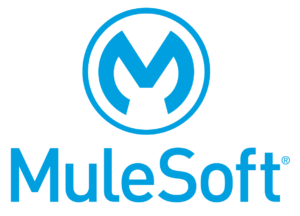MuleSoft Developer Anypoint Essentials Course
Overview
Anypoint Platform is the only complete platform that lets companies realize business transformation through API-led connectivity. It is a unified, flexible integration platform that solves the most challenging connectivity problems across SOA, SaaS and APIs, in a low-friction, developer-friendly way. Anypoint Platform lifts the weight of custom code and delivers the speed and agility to unlock the potential of the Connected Era.

Intended Audience:
Experience with Java(preferred) or another object-oriented language.
• A basic understanding of data formats such as XML, CSV, and JSON.
• A basic understanding of typical integration technologies such as HTTP,
JMS, JDBC, REST,and SOAP.
This typically maps to roles including:
• Developers (various languages)
• Program Managers
• Project Managers
• System Integrators
• Solution Consultants
• Business Architects
• Technical
Course Outline:
• Basic knowledge on Integration and role of MuleSoft.
• Introduction to Anypoint platform.
• How to set up the system and create a sample project using Anypoint Studio.
• Structuring Mule Applications.
• Different types of connectors available in Mule Palette and their usage.
• Connecting to databases, files, MQ, web services, SFTP, JMS queues, and more.
• Implementing the interfaces and triggering the flows using schedulers.
• Handling of large data/records using batch processing component.
• Handling and transforming different kinds of files like CSV, JSON and XML etc.
• Usage of Data Weave 2.0 (MuleSoft’s primary language for data transformation).
• Implementing of unit test cases to perform functional integration testing.
• Debugging and Troubleshooting Mule Applications.
• Logging and Monitoring.
• Error Handling and building of common error handling frameworks.
• Object Store-How to Store and Retrieve keys/values.
• API led connectivity and its usages.
• Designing the API’s using RAML (Restful API modeling Language).
• Building, Deploying and Managing Mule API’s.
• Applying API policies and proxy.
• Coding Standards and best practices while creating Mule projects and API’



